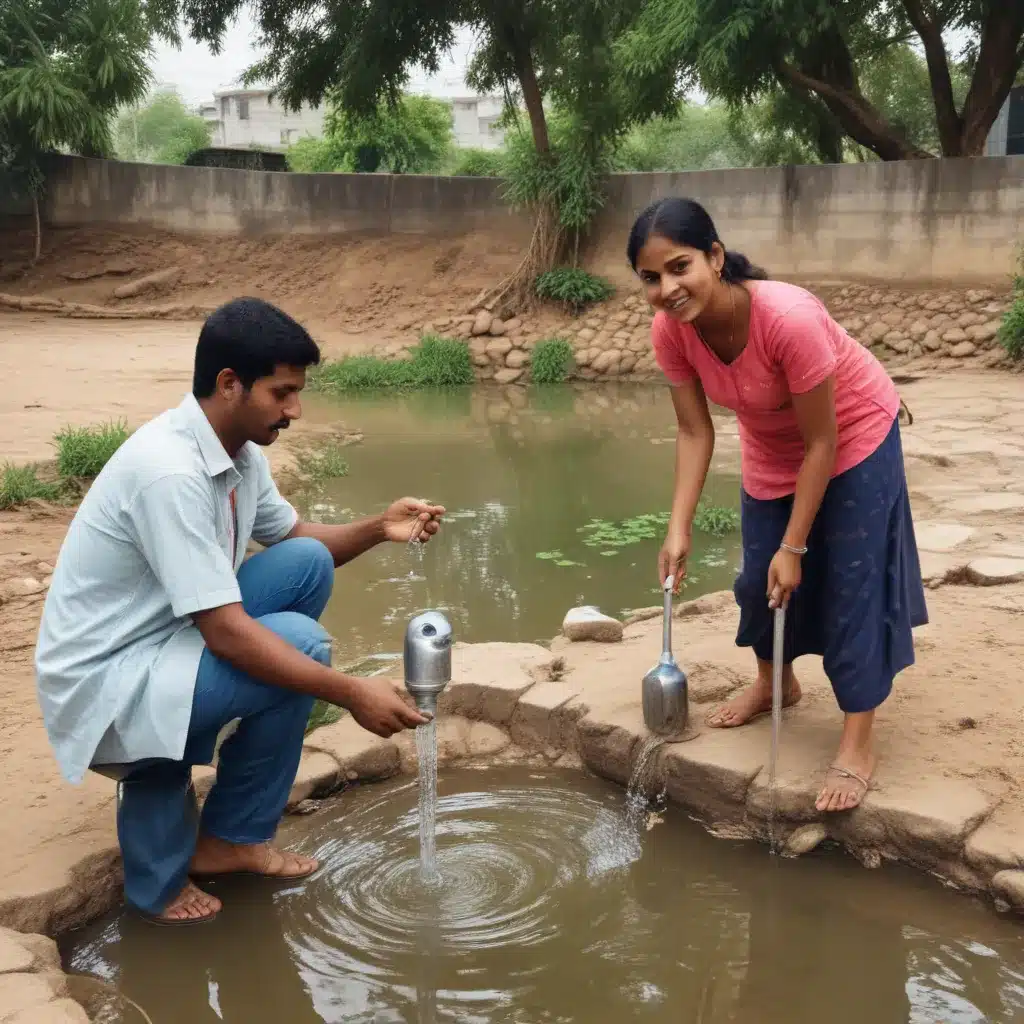
Empowering Communities for Water Quality Change
In the rapidly growing city of Hyderabad, India, access to clean, safe water remains a persistent challenge. Decades of rapid urbanization, pollution, and inefficient water management have left many residents, especially in low-income neighborhoods, facing the dire consequences of poor water quality. However, a growing movement of citizen science and community-led monitoring is empowering local stakeholders to drive much-needed change.
Citizen Science: Bridging the Data Gap
Reliable water quality data is essential for effective advocacy and policymaking, yet many underserved communities lack comprehensive monitoring programs. This is where citizen science initiatives are stepping in to fill the gap. By training community members to collect and analyze water samples, these programs are generating localized data that shines a light on the true state of Hyderabad’s water resources.
One such initiative, led by a local nonprofit organization, has equipped dozens of residents with water testing kits and guided them through the process of assessing key parameters like pH, turbidity, and the presence of harmful contaminants. The resulting data has not only helped these communities better understand the water challenges they face but has also provided a powerful evidence base for engaging with local authorities.
“Before, we didn’t have a clear picture of the water quality in our neighborhood,” explains Rekha, a community leader who has participated in the citizen science program. “Now, we can show the municipality the real problems we’re dealing with and demand that they take action.”
Driving Accountability through Community Monitoring
Complementing the citizen science efforts, community-based water quality monitoring programs are further amplifying the voices of Hyderabad’s residents. These initiatives empower local stakeholders to regularly assess and report on the condition of their water sources, holding both government agencies and private service providers accountable.
One such program, established through a partnership between a local university and a community-based organization, has trained a network of community monitors to collect and analyze water samples from various points in their neighborhoods. The data is then shared with relevant authorities, triggering prompt investigations and remedial actions.
“When we first started monitoring, we discovered that the water being supplied to our community was heavily contaminated,” says Aisha, a community monitor. “We immediately reported the issue to the water department, and within a few weeks, they had sent a team to assess the problem and make necessary repairs to the distribution network.”
Fostering Cross-Sector Collaboration
While citizen science and community monitoring have been instrumental in driving change, lasting improvements in Hyderabad’s water quality require a concerted, multi-stakeholder approach. The Joint Action for Water initiative has been at the forefront of facilitating cross-sector collaboration, bringing together local government, civil society organizations, and the private sector to develop integrated solutions.
One such collaboration has involved partnering with a leading technology company to deploy advanced water quality sensors and data management platforms in select neighborhoods. This has not only enhanced the precision and coverage of monitoring efforts but has also enabled real-time data sharing and streamlined communication between communities and authorities.
“By leveraging cutting-edge technology and forging strategic partnerships, we’ve been able to empower communities to take ownership of their water resources and hold duty-bearers accountable,” explains Sanjay, the director of the Joint Action for Water initiative. “This collaborative approach is vital for driving sustainable, scalable change.”
Elevating Community Voices Through Advocacy
Citizen science and community monitoring have not only generated critical data but have also amplified the voices of Hyderabad’s residents, elevating their concerns and demands on the public agenda. Through coordinated advocacy campaigns, these initiatives have successfully influenced local policies and secured commitments from government agencies to address water quality issues.
One such advocacy effort, led by a coalition of community-based organizations, resulted in the establishment of a dedicated water quality task force within the municipal government. This task force is now responsible for regularly monitoring water sources, investigating citizen complaints, and implementing remedial measures in a timely manner.
“Our advocacy work has shown that when communities are empowered with data and a platform to voice their concerns, they can drive real change,” says Meena, a community organizer. “We’re no longer just passive recipients of water services; we’re active stakeholders demanding accountability and transparency.”
Scaling Impact Through Replication and Collaboration
The success of Hyderabad’s citizen science and community monitoring initiatives has inspired similar efforts in other parts of India, as well as across the Global South. Through knowledge-sharing, capacity-building, and cross-regional collaborations, these programs are being replicated and adapted to address water quality challenges in diverse urban and peri-urban contexts.
One such collaboration has involved the Joint Action for Water initiative partnering with a network of civil society organizations in Southeast Asia to establish a regional knowledge-sharing platform. This platform facilitates the exchange of best practices, innovative technologies, and successful advocacy strategies, empowering communities across the region to take charge of their water futures.
“By fostering collaboration and replicating proven models, we can amplify the impact of citizen science and community monitoring, ensuring that more people have a voice in shaping the water policies and services that affect their lives,” affirms Sanjay.
Conclusion: A Sustainable Water Future Begins with Empowered Communities
In the face of persistent water quality challenges, the citizens of Hyderabad have emerged as agents of change, harnessing the power of citizen science and community monitoring to drive accountability and catalyze sustainable solutions. By bridging data gaps, fostering cross-sector collaboration, and elevating community voices through advocacy, these initiatives are paving the way for a more equitable and resilient water future for all.
As the Joint Action for Water initiative continues to support and scale these community-led efforts, the lessons and insights from Hyderabad can serve as a blueprint for empowering marginalized communities around the world to take charge of their water resources and shape the policies that govern them.

